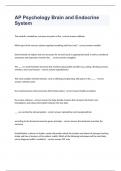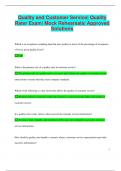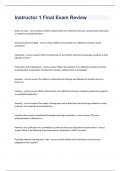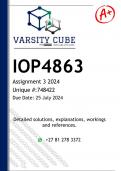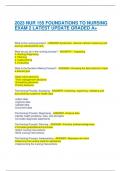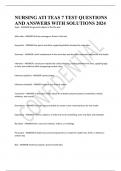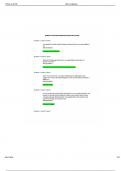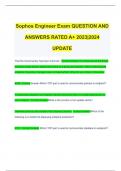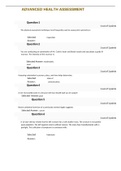Assignment 2 2024
Unique #: 705037
Due Date: 3 July 2024
Detailed solutions, explanations, workings
and references.
+27 81 278 3372
, BACKGROUND ON THE PROBLEM OF LEARNER APATHY/ALIENATION
Learner apathy and alienation are critical issues in contemporary education
systems, including in South Africa. These phenomena are marked by a lack of
engagement, enthusiasm, and motivation among students, leading to adverse
educational outcomes such as low academic performance, increased
absenteeism, and higher dropout rates. In the South African context, these
problems are particularly pronounced due to the nation's unique socio-political
history and ongoing socio-economic challenges.
South Africa's education system is profoundly shaped by its apartheid history,
which institutionalized racial segregation and provided vastly unequal resources to
schools depending on race (Spaull, 2015). Despite the end of apartheid in 1994,
lingering inequalities persist, manifesting in stark disparities between schools in
affluent areas and those in impoverished townships and rural regions (Van der
Berg, 2020). These inequalities contribute significantly to the problem of learner
apathy and alienation. Many students in under-resourced schools face inadequate
infrastructure, lack of learning materials, and overcrowded classrooms, which can
make the learning environment oppressive and disempowering (Smit, 2018).
Socio-economic challenges further exacerbate learner apathy and alienation. High
levels of poverty, unemployment, and social instability prevalent in many South
African communities create an adversarial backdrop for students. The interplay
between socio-economic status and educational engagement is well-documented
(Van der Berg, 2016). Learners from deprived backgrounds often grapple with
additional responsibilities at home, nutritional deficiencies, and inadequate learning
environments. This compounded stress detracts from their ability to focus on and
invest in their education, resulting in heightened absenteeism and eventually,
dropouts.
The educational environment and the quality of teacher-student relationships also
play a pivotal role. A significant number of South African schools are characterized
by overcrowded classrooms, limited resources, and a lack of adequately trained
teachers (Department of Basic Education, 2018). Such conditions create
oppressive learning environments where individual attention is scant, and
personalized pedagogical methods are untenable. Moreover, the high-stakes
Varsity Cube 2024 +27 81 278 3372
, emphasis on standardized testing fosters a competitive rather than collaborative
atmosphere, further isolating students. This environment undermines intrinsic
motivation, emphasizing grades over genuine intellectual curiosity and personal
growth.
The rigidity of the South African curriculum and its focus on standardized testing
exacerbate the problem of student disengagement. According to Jansen (2018),
the curriculum often fails to resonate with the lived experiences and cultural
backgrounds of students. The emphasis is predominantly on rote learning and
examination performance, rather than critical thinking and personal relevance.
Additionally, teachers, often under immense pressure to meet performance
metrics, may adopt authoritarian classroom management styles, further alienating
students (Chisholm et al., 2015).
Marginalized groups in South Africa, particularly those from racial and ethnic
minorities, as well as those with disabilities, face distinct barriers that perpetuate
educational disengagement. Historical and ongoing social injustices such as
racism, classism, and ableism manifest in discriminatory practices and policies
within the education system (Chisholm, 2015). This perpetuates a hostile
environment for marginalized students, fostering alienation and apathy. Such
systemic inequities not only affect students' academic performance but also erode
their self-esteem and agency, making educational attainment seem like an
unattainable objective.
Addressing learner apathy and alienation in South Africa necessitates a
multifaceted approach that takes into consideration the intricate web of socio-
economic, systemic, and interpersonal factors. Policymakers and educators must
strive to create a more inclusive, supportive, and engaging educational
environment. This involves not just curriculum reform and resource allocation but
also fostering positive teacher-student relationships and addressing broader social
inequities. Only through a nuanced understanding and concerted efforts can the
cycle of apathy and alienation be broken, paving the way for a more equitable and
motivating learning experience.
PROBLEM STATEMENT
Varsity Cube 2024 +27 81 278 3372

